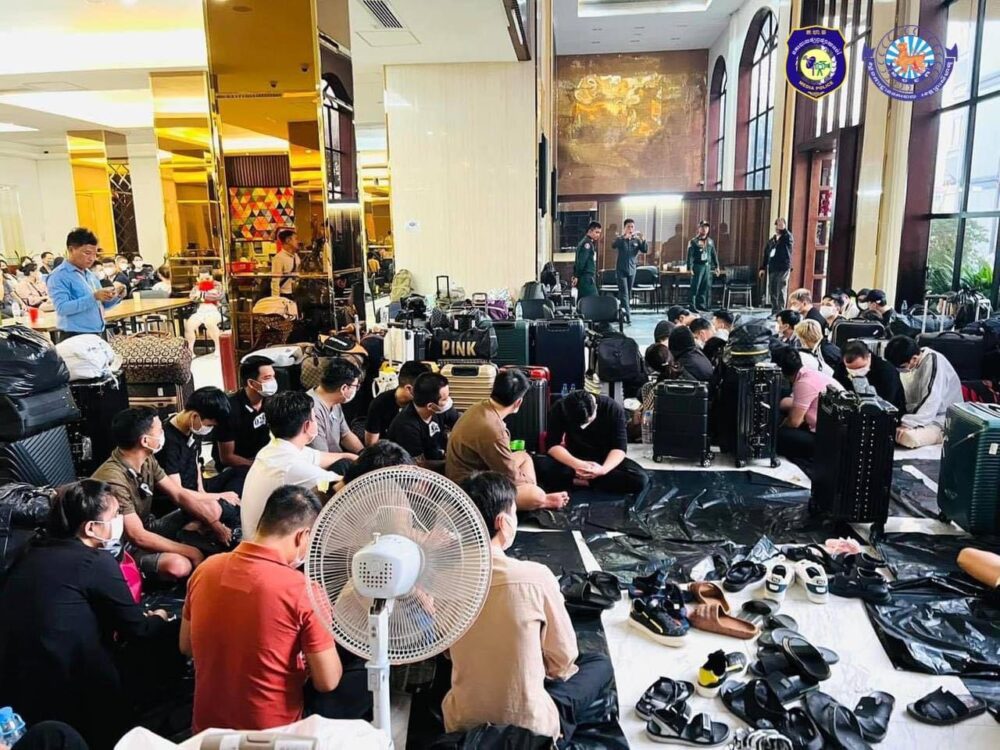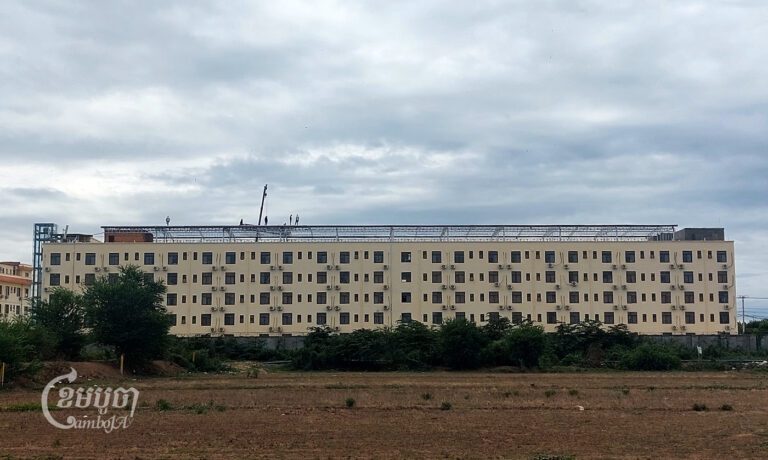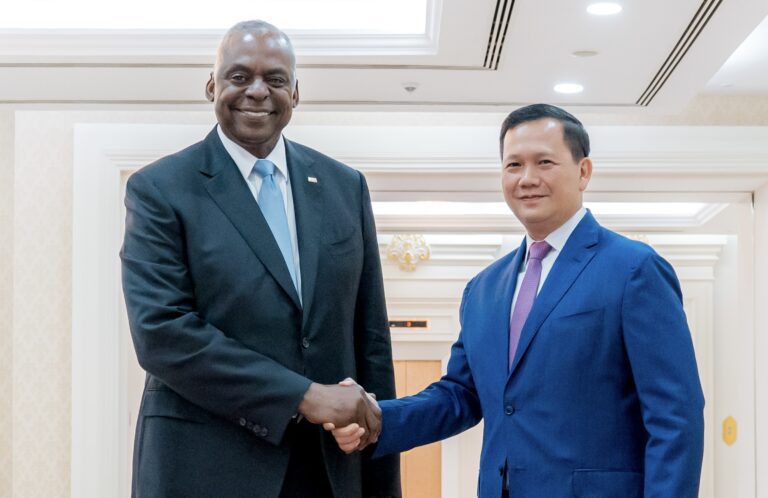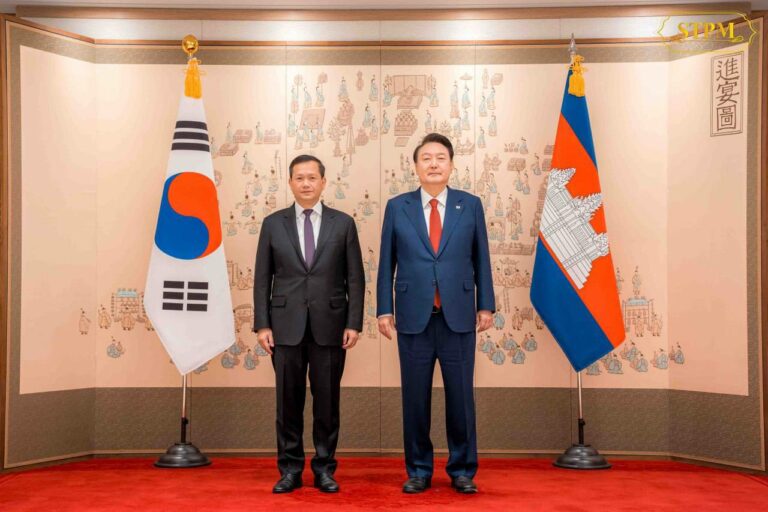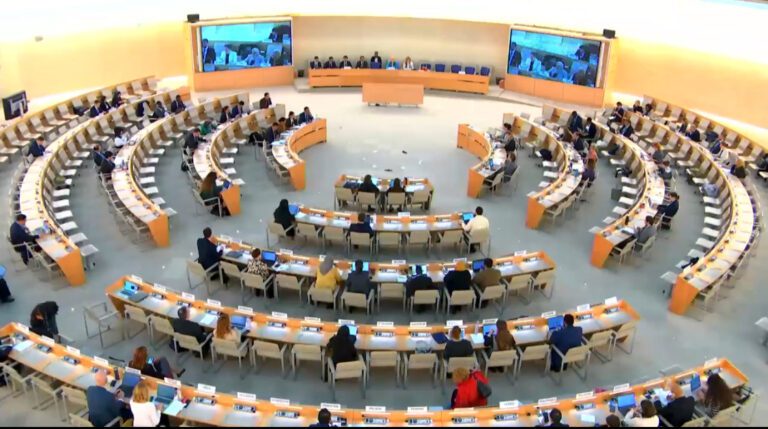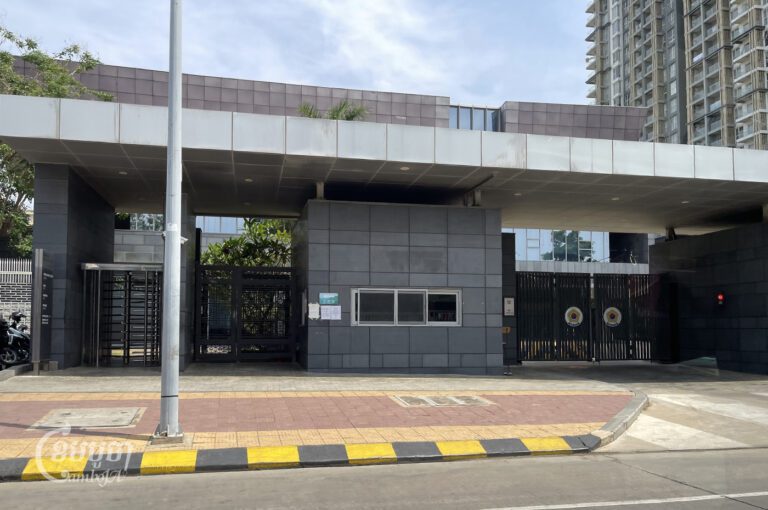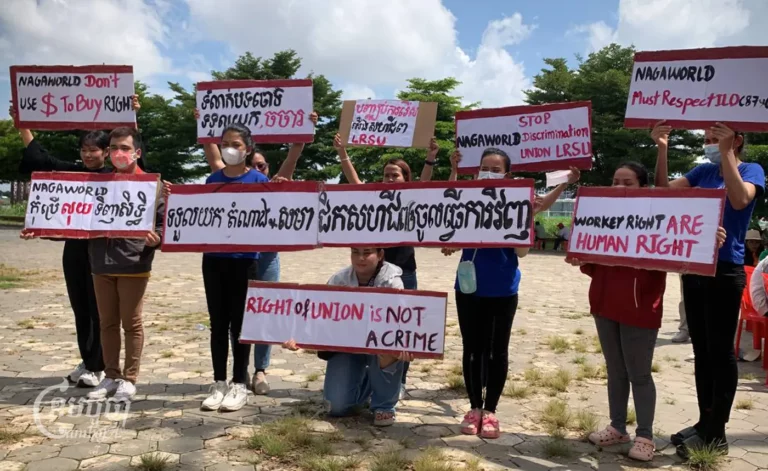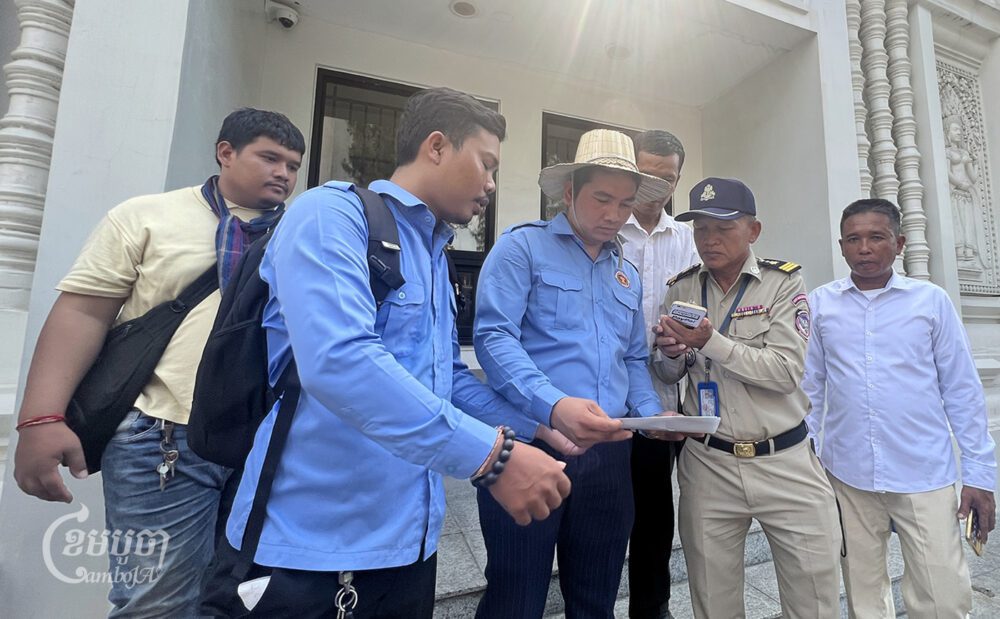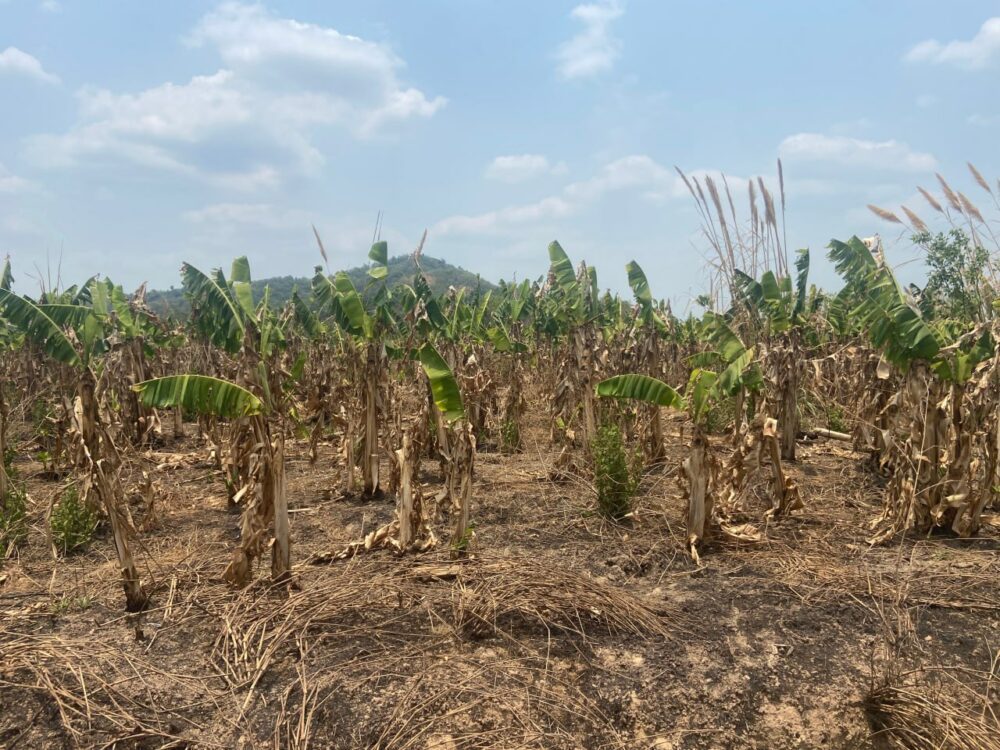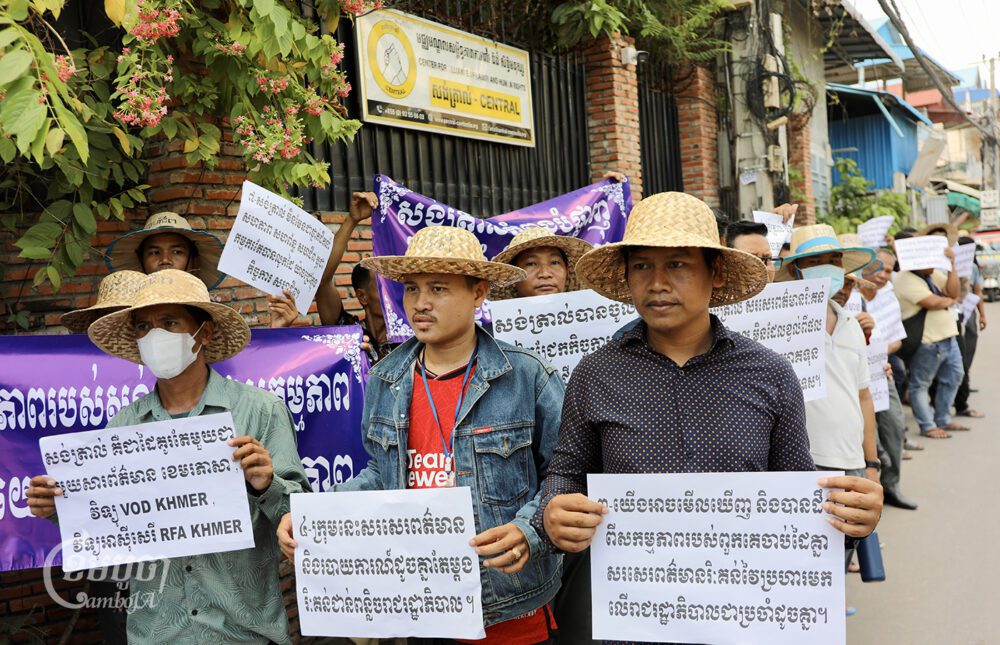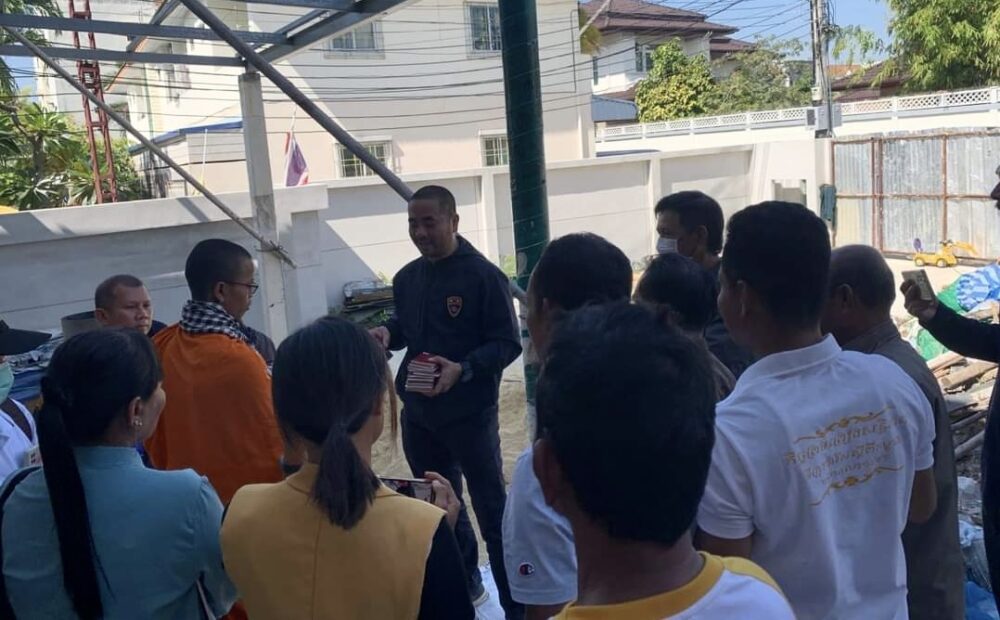Cambodia was ranked lowest for its response to human trafficking by the U.S. for the third year in a row, with a new report saying that Cambodian officials have not done enough – and in some unnamed cases, have been complicit – in human trafficking to feed the online fraud businesses within Cambodia’s borders.
The global “Trafficking in Persons” report, published by the U.S. State Department on June 24, said that officials have not done enough to investigate the widespread trafficking and forced labor of foreigners into the scam industry, while the country’s response to other forms of trafficking Cambodian citizens have also made insufficient improvement.
The report ranks countries based on their acknowledgment, response to and prevention of all forms of trafficking, and Cambodia has retained the lowest ranking – Tier 3 – as foreign workers in particular have increasingly been trafficked, detained by and tortured in shadowy online businesses conducting various forms of financial fraud, from the now-illicit online gambling industry to forex schemes, crypto investment frauds and online shopping scams.
This diverse palette of scams has been broadly called “pig butchering”, as international news outlets cover stories of victims in other countries who lose large sums of money after chatting with a scammer who have been traced to the Mekong region, including forced workers in Cambodia. The trend gets its name as some scam workers develop a conversational or romantic relationship with their mark before tricking them into depositing money, often in cryptocurrency – “fattening” and then “killing” the pig.
The report also noted other forms of trafficking that target Cambodian citizens have persisted with insufficient government response, including debt bondage in the brick kiln industry, trafficking into deep-sea fishing fleets, and sex trafficking within Cambodia’s border.
The State Department said that law enforcement was not properly identifying trafficking victims, instead calling workers’ calls for help as “labor disputes”, even though the Social Affairs Ministry has a set of victim identification guidelines and protection services. The report also noted that Cambodia needs to offer more support to victims of child trafficking and labor trafficking, with more funding from government budgets and less reliance on NGO donations.
Chou Bun Eng, permanent vice-chair of the National Committee for Counter Trafficking, defended Cambodia’s response to the alleged trafficking into the cyberscam industry, saying the country struggled to keep up with the cross-border and technical nature of the crimes.
“So far there has been no country that has done [this] successfully, as it is a cross border crime, and the real [perpetrators] who commit it, we have not been able to know [who they are] yet,” she said. “We can only crack down on the ones in front of our faces, and Cambodia can guarantee that we have not yet [solved it] successfully.”
She continued that even “big” countries like the U.S. have not been able to solve these crimes, and its citizens are still falling victim to online fraud. Bun Eng said she’s been discussing the issue with the U.S. and asking for help to solve such crimes.
“Today we have seen that each country has its people that have been defrauded or become victims due to the scamming, so it means no country has solved it yet successfully,” she said.
The State Department, in contrast, said that law enforcement officials were not holding enough crackdowns nor properly raiding businesses when workers call to the Interior Ministry or an Embassy for help, and Cambodian officials required too much information before initiating a raid. The report alleged that some fraud businesses were even alerted before raids.
“Some senior government officials and advisors owned – either directly or through businesses – properties and facilities known to be utilized by online scam operators used to exploit victims in labor trafficking and financially benefited directly from these crimes,” it said. “Involvement of officials and economic elites resulted in selective and politically motivated enforcement of laws, inhibiting effective law enforcement action against trafficking crimes, which remained widespread during the year.”
The report also noted that the government had appointed some individuals despite “past and ongoing public allegations of official complicity in human trafficking-related cases to positions overseeing, or with significant influence over, the government’s anti-trafficking response.”
Interior Ministry spokesperson Khieu Sopheak asked the U.S. to name the officials allegedly complicit in the online scam and gambling industry.
“We have tried our best and we still need support, especially from the US,” he said. “Who are the corrupted persons? Please tell us. We have never said no to [these reports]….When accusing this, tell us the name of the officers that have been corrupted…we are happy to do it and do not accuse us like this!”
He added that the Interior Ministry has fielded complaints and requests for help from “thousands of workers,” and cooperates with NGOs including the U.S.-based anti-trafficking NGO International Justice Mission among others.
Government spokesman Pen Bona declined to comment and referred questions to the Interior Ministry. Foreign Affairs Ministry spokesperson Chum Sounry did not respond to CamboJA News’ questions.
Though it did not specify the senior officials and advisors with alleged scam connections, recent news investigations shed more light: the now-defunct VOD English identified scam businesses connected to the US-sanctioned tycoon and government advisor Try Pheap as well as Senator Kok An; meanwhile, RFA found alleged detention and torture in compounds associated with Prince Group’s chairman Chen Zhi, a naturalized Cambodian citizen and advisor to Senate President Hun Sen.
Last month, the E.U. and U.N. rescheduled their launch of an anti-trafficking project after learning that their event would be hosted at a hotel owned by Senator Ly Yong Phat – who has allegedly rented space to scam businesses, according to New York Times reports.
When describing the scam and online gambling industry, the report describes the harshest treatment of workers, particularly foreigners who are trafficked, detained and at some points tortured or even murdered in scam businesses. Alongside the reported abuse and captivity, some workers have said they arrive with at least some awareness of the work they will be doing, and reportedly others have degrees of freedom to move around, including Cambodian workers recruited to these “online” businesses.
The report also focused on trafficking to the port city of Sihanoukville – which it mischaracterized as “an SEZ under a Belt and Road Initiative agreement between Cambodia and [China]” – while scam businesses have been increasingly growing in other cities like Poipet, Bavet, Sampov Poun as well as more remote locations.
The State Department noted that there are reportedly some 100,000 workers trafficked and forced to work in the online gambling and scam industry, citing a UN Human Rights report last year that the government also denied.
The report emphasized the growth of Cambodia’s online gambling and fraud industry in the explanation of its ranking – which has been called out by UN Human Rights, the UN’s special rapporteur, as well as Asean member countries.
In 2022, Cambodia was downgraded to Tier 3, meaning the country fails to meet “minimum standards” to stop and prevent incidents of human trafficking, protect its victims and punish its perpetrators. The fall in ranking coincided as the online scam and gambling grew in prevalence and visibility, with workers claiming they were trafficked, detained and tortured to work in jobs conducting a variety of online fraud activities.
Myanmar is the only other Mekong country to receive the same low ranking, where its scam and online gambling issues are exacerbated by ongoing conflict. Meanwhile, Laos ranks in the Tier 2 watchlist, and both Vietnam and Thailand are ranked Tier 2.
The Philippines, in contrast, is ranked Tier 1, though in recent weeks workers in the online gambling industry claim they were trafficked and tortured in similar operations in several Philippines Offshore Gambling Operators (POGOs).


